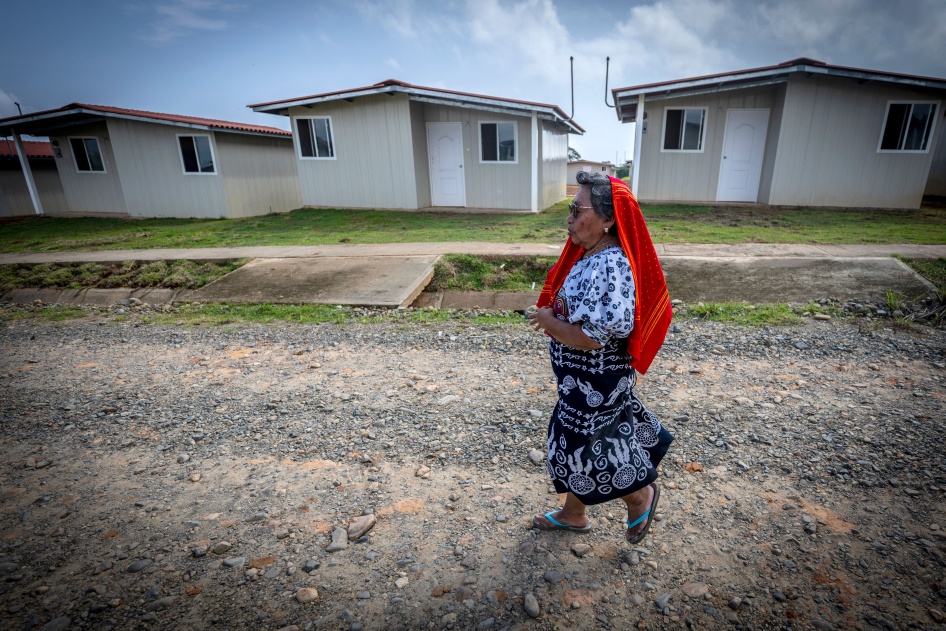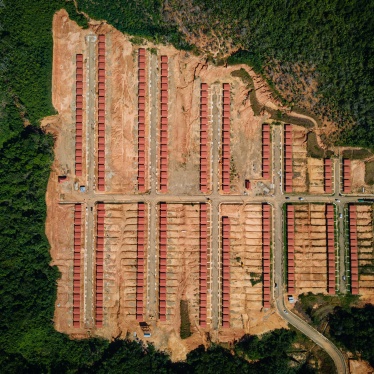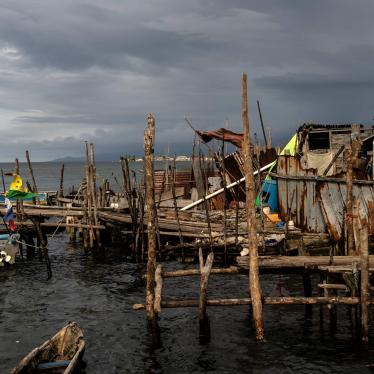Today, the Guna Indigenous people living on the tiny, overcrowded, and flood-prone island of Gardi Sugdub in Panama will finally be given keys to their long-awaited new homes on the mainland. Community members have anticipated this day since 2010, when they first sought government support to move.
The opening of the mainland site, called Isber Yala, is a celebratory moment. The Panamanian government is doing more than most governments around the world in supporting a community-led planned relocation in anticipation of long-term climate change impacts like sea level rise.
Since Human Rights Watch reported on the case of the Guna community last July, Panama has made meaningful progress to support them at the new site, including building cultural gathering spaces in the traditional Guna style. Such efforts can protect collective rights to culture during a relocation process.
But as the new site opens, government action is still needed to address concerns around its ability to meet the community’s basic needs such as access to water and proper sanitation.
Guna community leader Blas Lopez told Human Rights Watch last week: “Most people are excited, they want to relocate … but they also see the [remaining] problems and don’t want to move until priority needs are addressed.” In particular, he flagged trash disposal, access to water, and readiness of the school at Isber Yala as key concerns. Continued government efforts to listen to and address the needs of the community are essential.
“There are many challenges ahead, but this does not discourage us” Lopez said. “We understand … that [relocation] is going to be a process.”
Gardi Sugdub provides a glimpse into what community-led, government-supported planned relocation as climate adaptation can look like, but their experience is not without challenges. Panama should learn lessons from this case and draft a national policy to better safeguard human rights in future climate-related, community-led planned relocation efforts.
Around the world, an estimated 400 communities have already completed or are undertaking planned relocation due to natural hazards, many of which are intensified by climate change.
Panama, and every country with a coastline, needs to plan for rising seas and other climate change impacts, including by developing policies and funds to support community-led, rights-respecting relocation as a measure of last resort.










